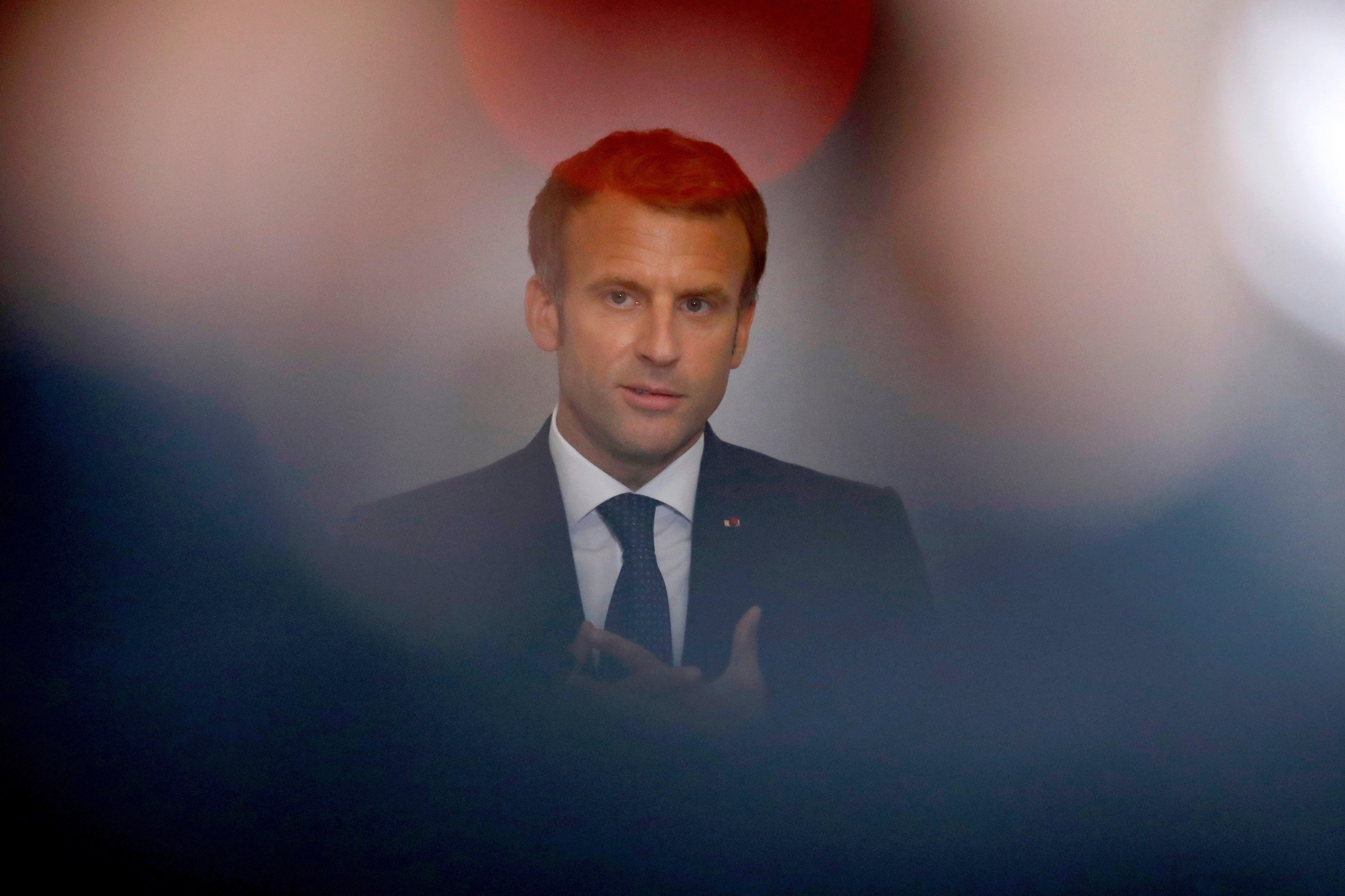France to reduce visas for North Africans in migration spat
A French government spokesperson says France plans to reduce the number of visas issued to people in North Africa because governments there are refusing to take back deported migrants

Your support helps us to tell the story
From reproductive rights to climate change to Big Tech, The Independent is on the ground when the story is developing. Whether it's investigating the financials of Elon Musk's pro-Trump PAC or producing our latest documentary, 'The A Word', which shines a light on the American women fighting for reproductive rights, we know how important it is to parse out the facts from the messaging.
At such a critical moment in US history, we need reporters on the ground. Your donation allows us to keep sending journalists to speak to both sides of the story.
The Independent is trusted by Americans across the entire political spectrum. And unlike many other quality news outlets, we choose not to lock Americans out of our reporting and analysis with paywalls. We believe quality journalism should be available to everyone, paid for by those who can afford it.
Your support makes all the difference.France will reduce the number of visas issued to people in North Africa because governments there are refusing to take back migrants expelled from France.
The move announced Tuesday comes amid pressure from far-right politicians on centrist President Emmanuel Macron to implement tougher immigration rules and creates new tensions between France and its North African neighbors. Morocco s foreign minister slammed the decision as “unjustified.”
Starting in a few weeks, the French government plans to slash the number of visas given to Algerians and Moroccans by half, and to Tunisians by 30%, according to government officials.
All three countries were part of France’s colonial empire, and many Europe-bound migrants and other visitors coming from those North African nations have family or other ties in France.
French spokesperson Gabriel Attal told Europe-1 radio that France decided to take action because Algeria, Morocco and Tunisia have refused recently to provide consular documents for their citizens being deported from France after arriving illegally. Virus travel restrictions have also complicated such return efforts.
A senior official in the French presidency said France notably wants North African countries to take back people flagged for extremism, and expressed hope that a solution can be found soon.
Attal said France has been trying to reach a diplomatic solution since it passed a tougher immigration law in 2018. Between January and July, French judicial authorities ordered 7,731 Algerians to leave French territory because they didn’t have residency authorization but only 22 departed because many lacked the necessary documents from Algeria, Europe-1 reported.
Moroccan Foreign Minister Nasser Bourita said his country has issued 400 consular documents to Moroccans being expelled from France, but the number was limited because many of them refused to take a virus test, which is required to re-enter Morocco.
That is “the problem of France, which must deal with it,” Bourita told a news conference in Rabat.
He said Morocco is trying to seek “the necessary balance between facilitating the movement of people, whether students, businessmen and those wishing to benefit from medical services, and combating clandestine immigration.”
Tunisia took a more conciliatory public stance. President Kais Saied’s office said: “We are among countries that are cooperative in this domain, and we have excellent relations with France.”
The French announcement comes as politicians on the right and far right are pushing for tougher immigration rules in advance of France’s April presidential election. Macron is expected to announce a reelection bid.
Far-right presidential candidate Marine Le Pen gave qualified backing to the visa reduction but suggested that Macron's government waited too long before acting. Le Pen was Macron’s main rival in the 2017 election and is seen as his principal opponent if he runs again.
“For a long, long, long, long time, I have been asking that steps be taken to oblige certain countries to respect international law,” she said, naming Algeria and Tunisia. “I am pleased that the president of the republic heard me. I find it’s a bit late."
Le Pen was speaking in Paris at a press conference about her plans, if elected, for a referendum on her proposals for a “drastic reduction” of immigration to France.
___
Tarik El Barakah in Rabat, Morocco, Bouazza ben Bouazza in Tunis, Tunisia, and Sylvie Corbet and John Leicester in Paris contributed.
___
Follow all of AP's migration coverage at https://apnews.com/hub/migration